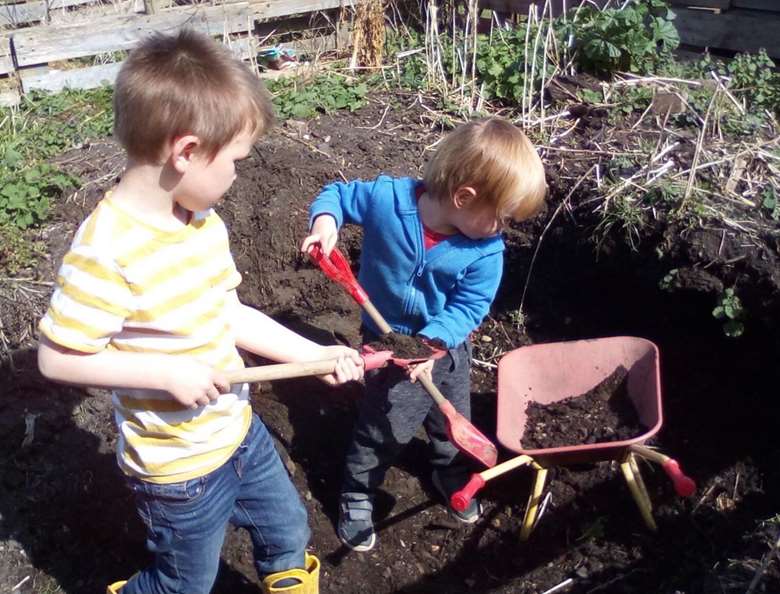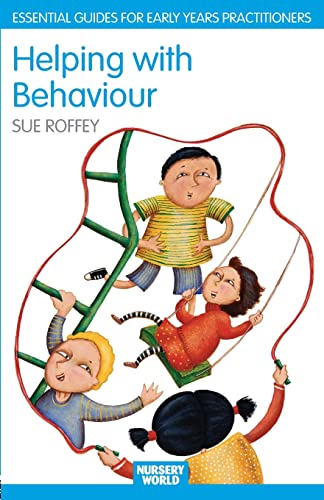Helping with Behaviour: Establishing the Positive and Addressing the Difficult in the Early Years
Introduction:
Behaviour management is a crucial aspect of early years education and requires a delicate balance between establishing positive relationships and addressing challenging behaviours. In this article, we will explore the importance of helping with behaviour in the early years, specifically focusing on establishing a positive environment and effectively addressing difficult behaviour. By following practical strategies and adopting a proactive approach to behaviour management, early years practitioners can create a nurturing and supportive learning environment for young children.
1. Importance of Behaviour Management in the Early Years:
Behaviour management plays a critical role in the early years as it helps establish a positive learning environment, promotes social and emotional development, and enhances children’s overall well-being. By addressing challenging behaviours and fostering positive relationships, early years practitioners set the foundation for successful learning experiences.
2. Understanding Behaviour in the Early Years:
Before addressing difficult behaviour, it is essential to understand the underlying factors that may contribute to it. Young children’s behaviours are often influenced by their emotions, experiences, and developmental stages. By being aware of these factors, practitioners can tailor their approaches to address specific needs and provide appropriate support.
3. Establishing a Positive Learning Environment:
Creating a positive learning environment is key to helping with behaviour in the early years. This includes setting clear expectations, implementing consistent routines, and promoting positive social interactions. By creating a supportive atmosphere, children feel valued, secure, and motivated to engage in positive behaviours.
4. Promoting Social and Emotional Development:
Supporting children’s social and emotional development is vital in addressing and preventing difficult behaviour. Early years practitioners can incorporate various strategies, such as encouraging self-regulation, promoting empathy, and teaching problem-solving skills. By nurturing these skills, children develop emotional resilience and gain the necessary tools to manage their behaviours effectively.
5. Building Positive Relationships:
Building positive relationships with children is fundamental to behaviour management. By establishing strong connections based on trust, respect, and understanding, practitioners can effectively address challenging behaviours. Building rapport with children also allows practitioners to identify underlying factors and tailor interventions accordingly.
6. Strategies for Addressing Difficult Behaviour:
When faced with challenging behaviours, early years practitioners can implement various strategies. These may include positive reinforcement, redirection, modelling appropriate behaviour, and providing clear and consistent consequences. By adopting proactive approaches, practitioners empower children to make positive choices and develop self-control.
7. Collaborating with Families:
Collaboration with families is crucial in addressing difficult behaviour in the early years. By maintaining open communication, sharing observations, and seeking parental input, practitioners gain valuable insights into children’s home environments. This collaboration allows for consistent strategies and support, promoting positive behaviour both at home and in the early years setting.
Conclusion:
Helping with behaviour in the early years is a complex yet rewarding process. By establishing a positive learning environment, promoting social and emotional development, and effectively addressing difficult behaviour, practitioners play a vital role in supporting children’s overall well-being and facilitating their learning journey. With the right strategies and collaborative efforts, early years practitioners can create a nurturing and inclusive environment that sets the foundation for lifelong positive behaviours.
FAQs:
1. How can I establish a positive learning environment in the early years?
Creating a positive learning environment involves setting clear expectations, implementing consistent routines, and promoting positive social interactions.
2. What are some effective strategies for addressing challenging behaviours in young children?
Positive reinforcement, redirection, modelling appropriate behaviour, and providing clear and consistent consequences are some effective strategies for addressing difficult behaviour.
3. Why is collaboration with families important in behaviour management?
Collaboration with families allows for consistent strategies and support, promoting positive behaviour both in the early years setting and at home.
4. How can I support children’s social and emotional development in the early years?
Supporting social and emotional development can be done through encouraging self-regulation, promoting empathy, and teaching problem-solving skills.
5. What role does behaviour management play in early years education?
Behaviour management helps establish a positive learning environment, promotes social and emotional development, and enhances children’s overall well-being in early years education.
Gallery
Classroom Dynamics: Practical Strategies For Addressing Off-Task

Photo Credit by: bing.com /
Nursery World Awards 2021 – Eco-Friendly Early Years | Nursery World

Photo Credit by: bing.com /
Helping With Behaviour: Establishing The Positive And Addressing The

Photo Credit by: bing.com /
Helping With Behaviour – AbeBooks

Photo Credit by: bing.com /
Cooperative Learning

Photo Credit by: bing.com / learning cooperative students ability establishing assigning teams positive mixed teaching computer insuring accountability helping individual skills process social information elementary






